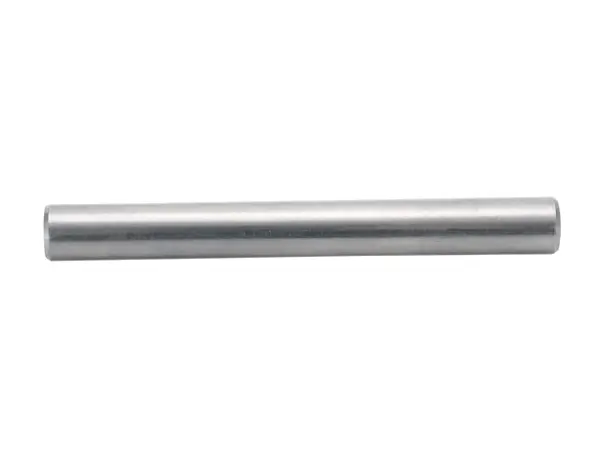Sustainable Solutions in Automotive Parts Recycling and Remanufacturing for a Greener Future
Nov . 06, 2024 22:10
The Importance and Benefits of Automotive Parts Remanufacturing
In the ever-evolving world of automotive technology, one of the most significant trends gaining traction is the remanufacturing of automotive parts. This practice, which involves taking used parts and restoring them to like-new condition, presents a multitude of benefits for businesses, consumers, and the environment alike. As vehicle owners become increasingly conscious of sustainability and cost-effectiveness, remanufactured auto parts are emerging as a viable solution that addresses both economic and ecological concerns.
Understanding Remanufacturing
Remanufacturing is a comprehensive process that entails disassembling a used part, cleaning it, inspecting it for wear and damage, replacing or repairing any substandard components, and finally reassembling and testing it to meet or exceed original equipment manufacturer (OEM) specifications. This meticulous approach ensures that remanufactured parts provide reliable performance and durability comparable to brand-new components.
The remanufacturing process not only breathes new life into automotive parts but also contributes significantly to resource conservation. The automotive industry is notorious for its substantial carbon footprint, primarily due to excessive raw material extraction and manufacturing processes. By remanufacturing parts, businesses can minimize the demand for new materials, which in turn reduces energy consumption and greenhouse gas emissions.
Economic Benefits
From a financial standpoint, remanufactured automotive parts offer significant savings. Purchasing a new OEM part typically incurs a higher cost, often accompanied by warranty fees and labor costs that can add up considerably. In contrast, remanufactured parts are often available at 30-50% lower prices while maintaining a robust warranty, making them an attractive option for cost-sensitive consumers and businesses alike.
Furthermore, automotive repair shops can enhance their bottom line by utilizing remanufactured parts. By offering these options to customers, shops can not only help clients save money but also boost their reputation as environmentally conscious service providers. Many patrons are drawn to businesses that prioritize sustainability, and by incorporating remanufactured parts into their offerings, shops can differentiate themselves in a competitive market.
automotive parts remanufacturing
Environmental Impact
The environmental benefits of automotive parts remanufacturing cannot be overstated. According to various studies, remanufacturing components can save up to 85% of the energy required to produce new parts, significantly reducing the overall carbon footprint associated with vehicle maintenance and repair. Additionally, remanufacturing helps to divert waste from landfills, as many used parts would likely have been discarded if not repurposed.
Moreover, the use of remanufactured parts diminishes the need for raw materials, thus alleviating the pressure on natural resources. This aligns with broader sustainability goals and supports the shift towards a circular economy, where products and materials are continually reused and recycled, thereby minimizing waste.
Challenges and Considerations
While the benefits of automotive parts remanufacturing are clear, there are challenges to overcome. Acceptance of remanufactured parts can sometimes be hindered by misconceptions about their quality and reliability. Education and awareness campaigns are crucial in dispelling these myths and demonstrating that remanufactured parts are a smart and sustainable alternative.
Moreover, the remanufacturing industry must adhere to stringent quality control measures to ensure that the parts meet safety and performance standards. Collaboration among manufacturers, repair shops, and regulatory bodies can promote best practices and foster innovation in remanufacturing processes.
Conclusion
In summary, automotive parts remanufacturing presents an array of benefits that cater to economic, environmental, and consumer needs. By opting for remanufactured parts, vehicle owners and repair shops not only save money but also contribute positively to the environment and promote sustainable practices within the automotive industry. As awareness grows and technology advances, the remanufacturing industry is poised for significant expansion, ultimately shaping a more sustainable future for automotive maintenance and repair. Embracing remanufactured components could very well be the key to an eco-friendlier automotive world.
 Afrikaans
Afrikaans  Albanian
Albanian  Amharic
Amharic  Arabic
Arabic  Armenian
Armenian  Azerbaijani
Azerbaijani  Basque
Basque  Belarusian
Belarusian  Bengali
Bengali  Bosnian
Bosnian  Bulgarian
Bulgarian  Catalan
Catalan  Cebuano
Cebuano  Corsican
Corsican  Croatian
Croatian  Czech
Czech  Danish
Danish  Dutch
Dutch  English
English  Esperanto
Esperanto  Estonian
Estonian  Finnish
Finnish  French
French  Frisian
Frisian  Galician
Galician  Georgian
Georgian  German
German  Greek
Greek  Gujarati
Gujarati  Haitian Creole
Haitian Creole  hausa
hausa  hawaiian
hawaiian  Hebrew
Hebrew  Hindi
Hindi  Miao
Miao  Hungarian
Hungarian  Icelandic
Icelandic  igbo
igbo  Indonesian
Indonesian  irish
irish  Italian
Italian  Japanese
Japanese  Javanese
Javanese  Kannada
Kannada  kazakh
kazakh  Khmer
Khmer  Rwandese
Rwandese  Korean
Korean  Kurdish
Kurdish  Kyrgyz
Kyrgyz  Lao
Lao  Latin
Latin  Latvian
Latvian  Lithuanian
Lithuanian  Luxembourgish
Luxembourgish  Macedonian
Macedonian  Malgashi
Malgashi  Malay
Malay  Malayalam
Malayalam  Maltese
Maltese  Maori
Maori  Marathi
Marathi  Mongolian
Mongolian  Myanmar
Myanmar  Nepali
Nepali  Norwegian
Norwegian  Norwegian
Norwegian  Occitan
Occitan  Pashto
Pashto  Persian
Persian  Polish
Polish  Portuguese
Portuguese  Punjabi
Punjabi  Romanian
Romanian  Samoan
Samoan  Scottish Gaelic
Scottish Gaelic  Serbian
Serbian  Sesotho
Sesotho  Shona
Shona  Sindhi
Sindhi  Sinhala
Sinhala  Slovak
Slovak  Slovenian
Slovenian  Somali
Somali  Spanish
Spanish  Sundanese
Sundanese  Swahili
Swahili  Swedish
Swedish  Tagalog
Tagalog  Tajik
Tajik  Tamil
Tamil  Tatar
Tatar  Telugu
Telugu  Thai
Thai  Turkish
Turkish  Turkmen
Turkmen  Ukrainian
Ukrainian  Urdu
Urdu  Uighur
Uighur  Uzbek
Uzbek  Vietnamese
Vietnamese  Welsh
Welsh  Bantu
Bantu  Yiddish
Yiddish  Yoruba
Yoruba  Zulu
Zulu 












